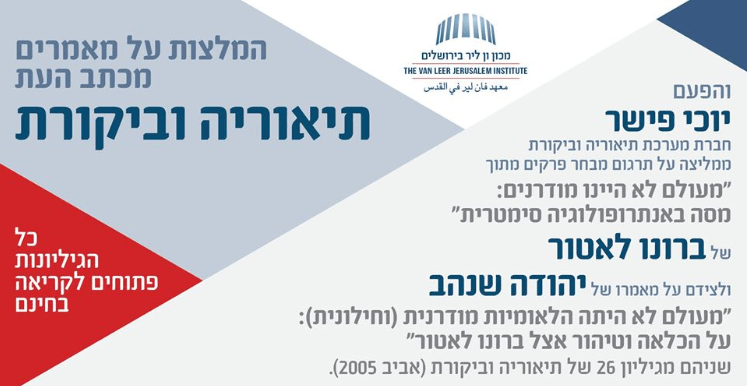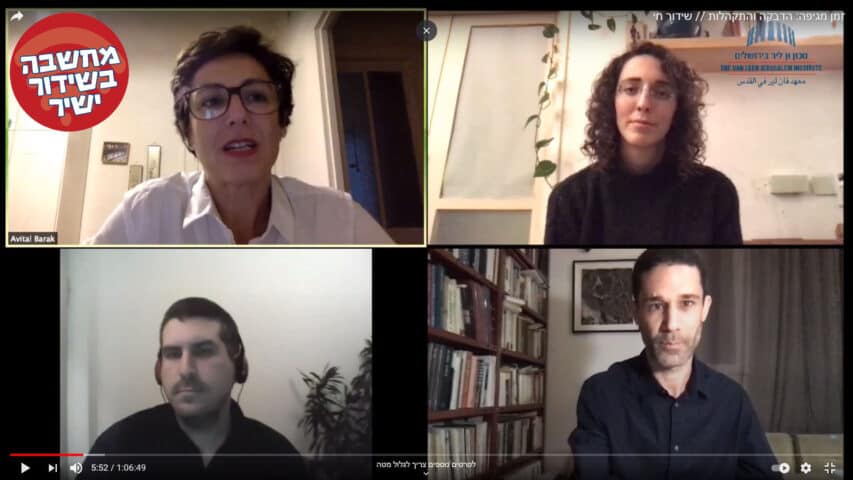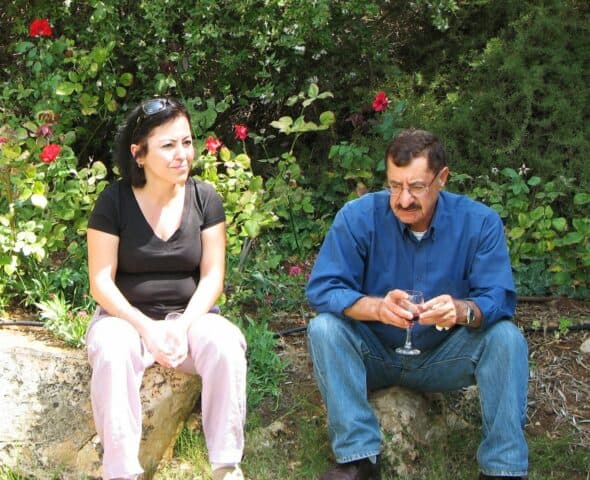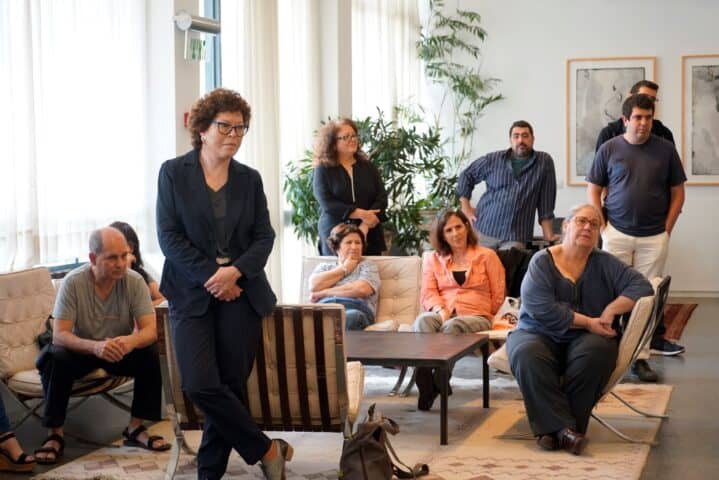"We Have Never Been Modern" – Reading recommendation
Dr. Yochi Fischer | 26.07.2020 | Photo: lotte

This is a good time to go back and read two texts that were published at the same time in Theory and Criticism ("Teoria uvikoret") 26 (Spring 2005):
- "We Have Never Been Modern: An Essay on Symmetrical Anthropology – Selected Chapters" by Bruno Latour
- "There Never Has Been Modern (and Secular) Nationalism: On Hybridization and Purification in Bruno Latour" by Yehouda Shenhav
Two of the examples that begin Bruno Latour’s essay, written in 1993, sound all too familiar: concern that the hole in the ozone is growing and with it the catastrophe, “the crime against the atmosphere,” as he calls it; and impotence in the face of a spreading epidemic – in this case, AIDS. Delving into Latour’s definitions is very rewarding, although it is not an easy read.
But reading Latour becomes fascinating when read alongside the article by Yehouda Shenhav. Shenhav not only places Latour within his time and place and explains his arguments clearly, he uses his thesis to offer a groundbreaking and far-reaching reading of the Zionist case. The case of Zionism is not unique, but it pushes to the edge the simultaneity of modern hybridization and purification; it contains the classic “hybridization” of religion and secularity, while simultaneously encoding the hybridization with a constant “purification” and emphasis on the distinction between the modern or Western-secular and the premodern-religious.
Even at a distance of 15 years, in which much has been studied and written about religion, nationalism and secularization, Shenhav’s article remains relevant, fascinating and illuminating.
The reading of Latour and Shenhav at this time confirms the observation on the paradoxes of what we call “modernity” – paradoxes that are only getting stronger.




